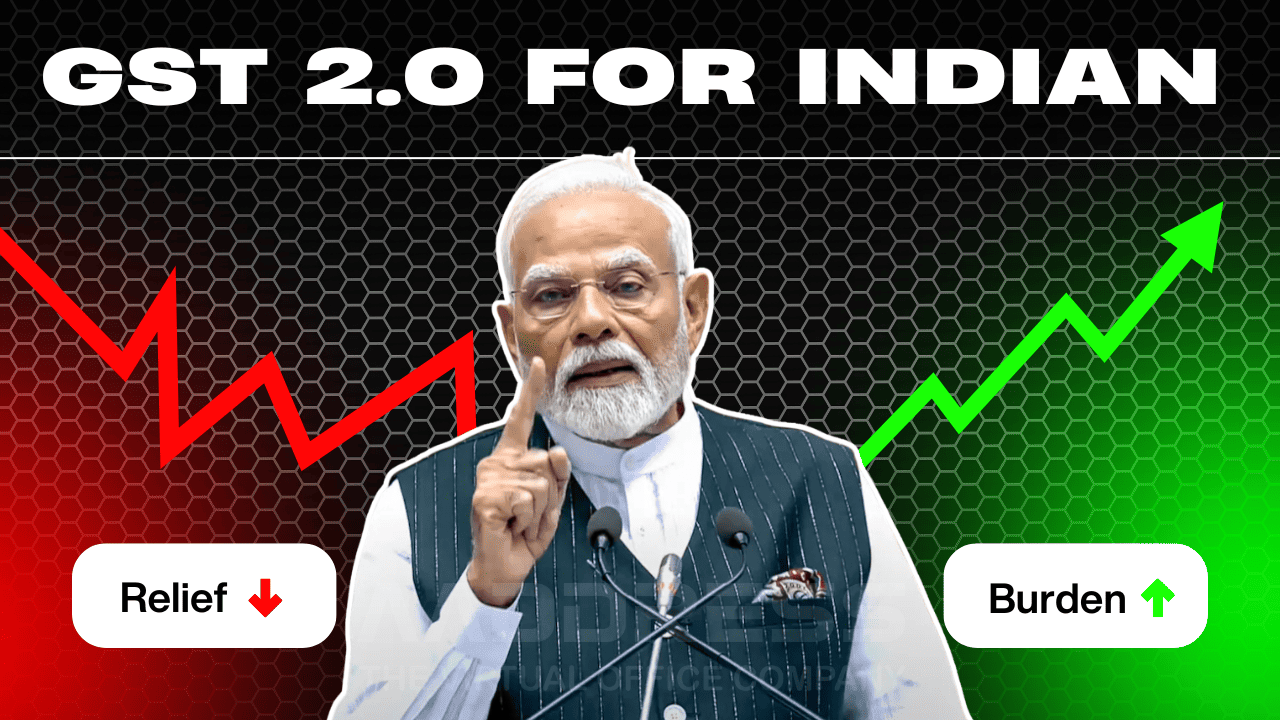Don’t just get a virtual office—let us help you build your business with our expert resources.Learn More
The Success Story of Entrepreneurs in India

Highlights:
-
- India's entrepreneurship ecosystem has seen remarkable growth in recent years, with the country now home to the 3rd largest startup ecosystem in the world.
- As of October 2023, there were over 1,12,718 startups in India, up from just 452 in 2016 and 84,012 in 2022.
- By 2025, India is expected to have 250 unicorns.
- The total number of jobs created by domestic startups in India reached 2.69 lakh in 2022, up 35.8% from 1.98 lakh in 2021.
- India's startup ecosystem is now diversifying beyond major cities, with nearly 50% of startups originating from Tier-2 and Tier-3 cities.
Introduction
India, a land of diversity and vibrant culture, has also become a fertile ground for entrepreneurship over the past few decades. The country's economic liberalization in the early 1990s marked the beginning of a new era, enabling entrepreneurs to explore and exploit various opportunities.
Today, Indian entrepreneurs are making headlines globally, showcasing the nation's capability to nurture and develop world-class businesses.
This blog takes a deep dive into the success stories of some of these remarkable entrepreneurs, shedding light on their journeys, challenges, and contributions to India's economic landscape.
The Rise of Indian Entrepreneurship
Economic Liberalization and its Impact
The economic reforms of 1991, led by then Finance Minister Dr. Manmohan Singh, played a pivotal role in shaping modern Indian entrepreneurship. These reforms included reducing import tariffs, deregulating markets, and opening up the economy to foreign investments. This created a conducive environment for businesses to thrive, encouraging a new breed of entrepreneurs to emerge.
Technological Advancements
The advent of the internet and mobile technology further accelerated entrepreneurial activities in India. The IT boom in the late 1990s and early 2000s, epitomized by companies like Infosys and Wipro, laid the foundation for a tech-driven entrepreneurial ecosystem. Today, technology continues to be a major driver, with startups leveraging artificial intelligence, blockchain, and other advanced technologies to create innovative solutions.
Pioneering Entrepreneurs and Their Journeys
1. Narayana Murthy and Infosys
Narayana Murthy, often referred to as the father of the Indian IT sector, co-founded Infosys in 1981 with an initial capital of $250, borrowed from his wife Sudha Murthy. Infosys, under Murthy's leadership, became synonymous with Indian IT services globally. Murthy's emphasis on corporate governance, employee empowerment, and a client-centric approach helped Infosys set benchmarks in the industry. Today, Infosys is a multinational corporation with revenues exceeding $14 billion, employing over 250,000 people.
2. Kiran Mazumdar-Shaw and Biocon
Kiran Mazumdar-Shaw, a pioneering woman entrepreneur, founded Biocon in 1978 in a garage with a seed capital of Rs. 10,000. Initially, Biocon focused on enzyme manufacturing but later transitioned into biopharmaceuticals. Under her visionary leadership, Biocon has grown into a leading global biopharmaceutical company, specializing in diabetes and oncology drugs. Kiran's journey is a testament to perseverance and innovation in the face of adversity.
3. Mukesh Ambani and Reliance Industries
Mukesh Ambani, the chairman and largest shareholder of Reliance Industries, has played a crucial role in transforming his father's textile business into a diversified conglomerate. Under his leadership, Reliance ventured into petrochemicals, refining, and telecommunications. The launch of Reliance Jio in 2016 revolutionized the Indian telecom industry by offering affordable data and voice services, driving digital inclusion across the country. Today, Reliance Industries is one of the most valuable companies in India, with a market capitalization exceeding $200 billion.
4. Sachin and Binny Bansal and Flipkart
Sachin and Binny Bansal, former Amazon employees, co-founded Flipkart in 2007. Starting as an online bookstore, Flipkart expanded into various product categories, becoming India's leading e-commerce platform. The company's customer-centric approach, innovative marketing strategies, and efficient logistics network played a significant role in its success. In 2018, Walmart acquired a 77% stake in Flipkart for $16 billion, marking one of the largest e-commerce deals globally.
5. Ritesh Agarwal and OYO Rooms
Ritesh Agarwal, a college dropout, founded OYO Rooms in 2013 with the vision of providing affordable and standardized accommodation. OYO's unique business model, which involved partnering with budget hotels and transforming them into branded properties, disrupted the hospitality industry. Despite facing several challenges, including regulatory hurdles and operational issues, OYO expanded rapidly across India and into international markets. Agarwal's entrepreneurial journey exemplifies resilience and adaptability.
The Role of Ecosystem Enablers
Government Initiatives
The Indian government has launched several initiatives to promote entrepreneurship, such as Startup India, Make in India, and Digital India. These programs aim to provide financial support, ease regulatory processes, and foster a culture of innovation and entrepreneurship.
Incubators and Accelerators
Incubators and accelerators have played a vital role in nurturing early-stage startups. Institutions like Indian Angel Network, TiE (The Indus Entrepreneurs), and NASSCOM's 10,000 Startups program offer mentorship, funding, and networking opportunities to budding entrepreneurs.
Venture Capital and Funding
The availability of venture capital has been instrumental in the growth of the Indian startup ecosystem. Domestic and international venture capital firms, including Sequoia Capital, Accel Partners, and SoftBank, have invested heavily in Indian startups, providing them with the necessary capital to scale their operations.
Emerging Trends in Indian Entrepreneurship
Fintech Revolution
The fintech sector in India has witnessed exponential growth, driven by the government's push for digital payments and financial inclusion. Companies like Paytm, PhonePe, and Razorpay are leading the charge, offering innovative solutions for payments, lending, and financial management.
Edtech Boom
The edtech industry has also seen significant traction, especially during the COVID-19 pandemic, which necessitated remote learning. Startups like BYJU'S, Unacademy, and Vedantu are leveraging technology to provide quality education and upskilling opportunities to millions of students.
Healthtech Innovations
Healthtech startups are addressing critical gaps in healthcare delivery by offering telemedicine, diagnostics, and health management solutions. Practo, 1mg, and PharmEasy are some of the key players making healthcare more accessible and affordable.
Agritech Advancements
Agritech startups are leveraging technology to enhance agricultural productivity and efficiency. Companies like Ninjacart, AgroStar, and DeHaat are providing solutions ranging from supply chain optimization to farm advisory services, benefiting farmers and improving food security.
Challenges Faced by Indian Entrepreneurs
Despite the progress, Indian entrepreneurs face several challenges, including:
Regulatory Hurdles
Navigating the complex regulatory landscape can be daunting for entrepreneurs. Although the government has made efforts to simplify regulations, bureaucratic red tape and compliance requirements remain significant obstacles.
Access to Funding
While venture capital is available, early-stage startups often struggle to secure funding. Many entrepreneurs rely on personal savings or loans, which can limit their growth potential.
Talent Acquisition
Attracting and retaining skilled talent is another challenge, especially for startups competing with established companies. The demand for technical and managerial skills often outstrips supply, driving up costs and affecting productivity.
Inspiring Stories of Young Entrepreneurs
1. Vijay Shekhar Sharma and Paytm
Vijay Shekhar Sharma founded Paytm in 2010, initially as a mobile recharge platform. Over the years, Paytm has evolved into a comprehensive digital payments ecosystem, offering services like wallet, banking, e-commerce, and financial products. Sharma's vision and perseverance have positioned Paytm as a leader in India's fintech landscape, with over 450 million registered users.
2. Bhavish Aggarwal and Ola Cabs
Bhavish Aggarwal co-founded Ola Cabs in 2010, addressing the need for reliable and affordable urban transportation. Ola's app-based cab booking service disrupted the traditional taxi industry and expanded into various segments, including bike taxis and electric vehicles. Today, Ola operates in several countries and continues to innovate in the mobility space.
3. Deepinder Goyal and Zomato
Deepinder Goyal, along with Pankaj Chaddah, founded Zomato in 2008 as a restaurant discovery platform. Zomato has since diversified into food delivery, dining out, and restaurant management solutions. Goyal's focus on customer experience and data-driven decision-making has helped Zomato become a global brand, operating in over 20 countries.
The Future of Entrepreneurship in India
The future of entrepreneurship in India looks promising, with several factors contributing to its continued growth:
Digital Transformation
The ongoing digital transformation, accelerated by the proliferation of smartphones and internet connectivity, is creating new opportunities for entrepreneurs. Sectors like e-commerce, digital media, and online services are expected to witness significant growth.
Innovation and R&D
Increasing investment in research and development, coupled with a growing emphasis on innovation, will drive the creation of new products and services. Entrepreneurs are likely to explore cutting-edge technologies like artificial intelligence, blockchain, and the Internet of Things (IoT) to solve complex problems.
Social Entrepreneurship
Social entrepreneurship is gaining traction, with entrepreneurs focusing on creating social impact alongside financial returns. Startups addressing issues like clean energy, education, healthcare, and sanitation are likely to play a crucial role in India's development.
Global Expansion
Indian startups are increasingly looking beyond domestic markets to expand globally. With a strong foundation and growing confidence, many entrepreneurs are eyeing international markets for growth and diversification.
Conclusion
The success stories of Indian entrepreneurs reflect a journey of resilience, innovation, and ambition. From tech giants like Infosys and Flipkart to emerging startups in fintech, edtech, and healthtech, Indian entrepreneurs are making their mark globally.
Despite challenges, the entrepreneurial spirit in India remains undeterred, driven by a supportive ecosystem and a vision for a better future. As India continues to evolve as a global economic powerhouse, its entrepreneurs will undoubtedly play a pivotal role in shaping the country's destiny.
The entrepreneurial landscape in India is a testament to the country's dynamic and enterprising spirit. With the right support and continued focus on innovation, the next decade promises to be a golden era for Indian entrepreneurship, contributing significantly to the global economy.
Subscribe To Our Newsletter
Conquer your day with daily search marketing news.
Most popular Blogs
Virtual Address vs Home Address for Business Registration in India
The most important thing you need for starting your business in India is an official...
Read Full ArticleReading Time: 2 minutes 45 seconds.GST 2.0 Explained: What Will Get Cheaper for Indian Consumers in 2025?
India is about to reform its goods and services tax (GST) since its introduction in...
Read Full ArticleReading Time: 5 mins.Top 5 Locations in Delhi to Set Up Your Virtual Office
When you start a business in Delhi, there's always that one uncle or friend who...
Read Full ArticleReading Time: 5 min.How to Start Water Bottle Business in India: A Practical Guide
Starting a water bottle business in India can be a smart and rewarding move. ...
Read Full ArticleReading Time: 4 min.



